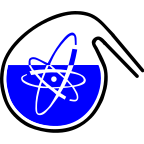Speaker
Description
Hydrogen isotopes are studied in many research areas to clarify fundamental and applied aspects of their physicochemical behavior. Besides deuterium, the isotope tritium has become the focus of current investigations. One important application is the separation of hydrogen isotopes. Currently available methods have low separation efficiency and high energy consumption. Therefore, approaches to increase efficiency are presently being explored, with a focus on gaseous deuterium.
In our work we will investigate two types of materials, on the one hand membrane materials (graphene and Nafion) and on the other hand nanoporous materials (metal-organic frameworks) with respect to tritium separation. For these studies, we needed to establish an analytical routine for working with gaseous tritium, from access to quantification methods. For this purpose, we employed a tritium manifold that uses heat to release gaseous tritium from a reservoir in a defined manner. The tritium gas under defined pressure and, in the future, mixtures of hydrogen isotopes will be used for separation experiments in flow cells. The gas will eventually be converted to HTO, which will be analyzed by liquid scintillation counting (LSC), where the measured activity directly corresponds to the concentration of tritium in the analyzed sample. To assess the quality of the proposed analytical method, the data obtained from the LSC measurements were compared with the calculated values and with the pressures applied during tritium dosing from the manifold. The measured values correspond directly to the applied pressures and agree well with the calculated data. These results indicate the proficiency of the established analytical approach, which allows to explore the proposed separation methods with high precision.

